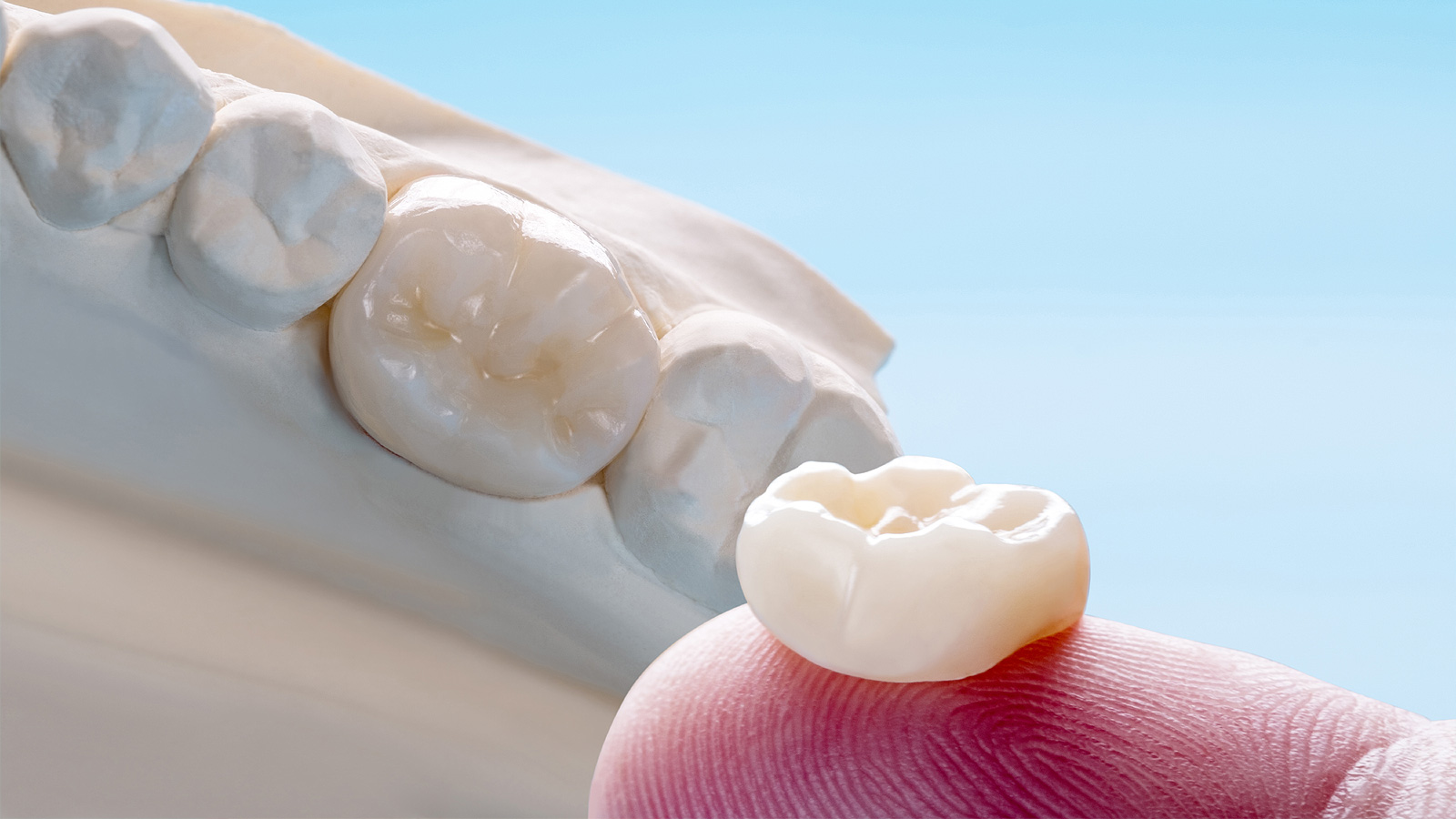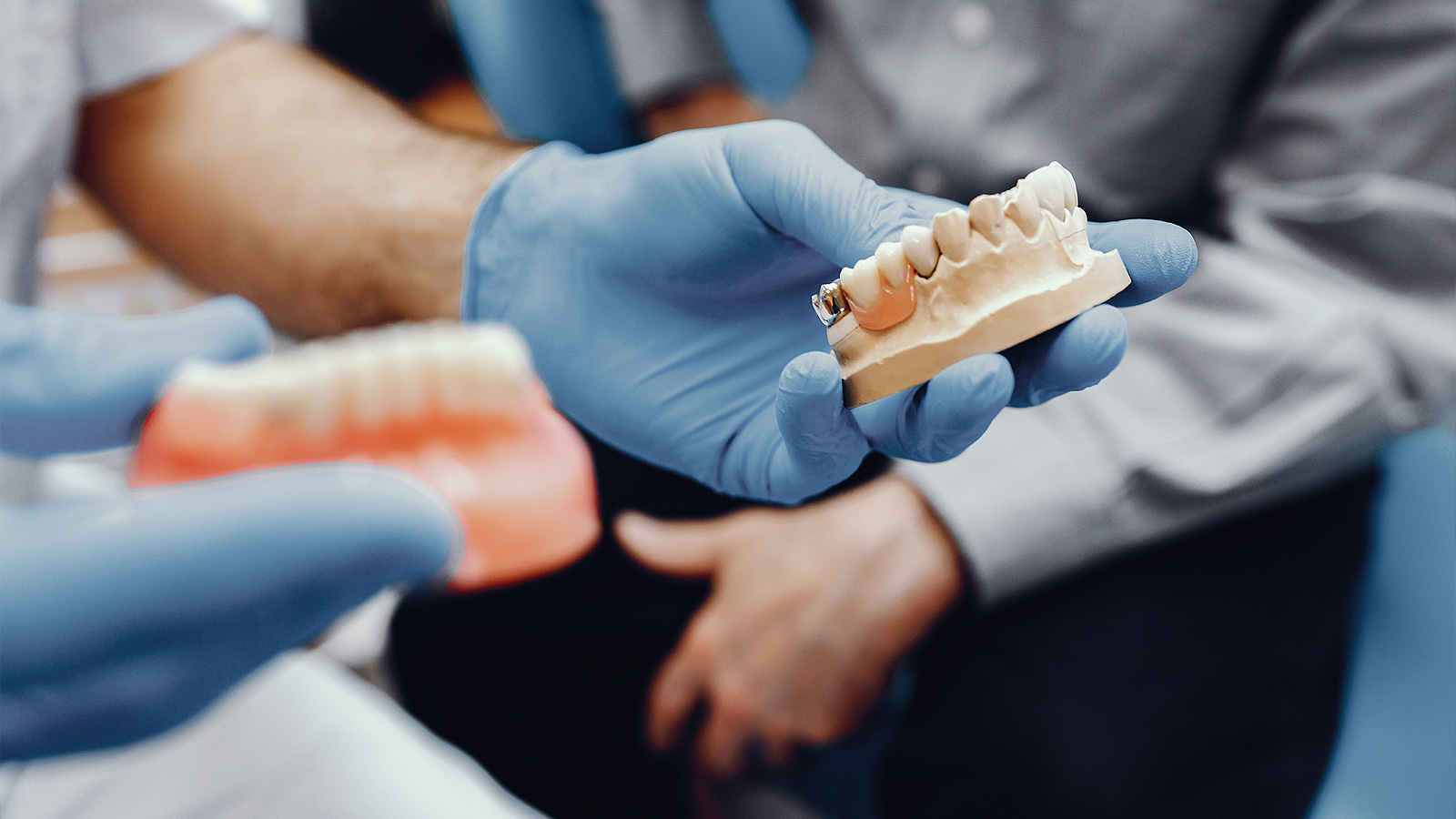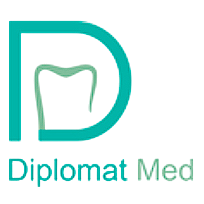Dental crowns at Diplomat Med: a reliable solution
for restoring your smile

What dental crowns are and why they are needed
Dental crowns are prosthetic restorations placed over a damaged tooth to restore its shape, function, and esthetics. A crown protects the weakened tooth from further damage and ensures full chewing efficiency. Modern dentistry uses different materials: ceramic, metal-ceramic, zirconia, and pressed ceramic. Each option has its own features, indications, and limitations.
Popularity of crowns in Europe and CIS
According to the European Federation of Periodontology (EFP), more than 60% of adult patients in Europe require tooth restoration using prosthetic constructions (PubMed). In CIS countries, demand for dental prosthetics is steadily increasing: studies in Moscow and Kyiv show that up to 40% of patients over 40 years old have at least one crown. Modern technologies such as CAD/CAM systems allow for high precision and perfect fit, improving longevity and reducing the risk of complications.
Metal-ceramic crowns
A metal-ceramic crown consists of a strong metal framework covered with a ceramic layer. This type combines the strength of metal with the esthetics of ceramic. Placement requires significant tooth preparation, since both material layers must be accommodated. However, for many years, metal-ceramics have been considered the “gold standard” of prosthetics due to their durability and versatility. Clinical studies show that metal-ceramic crowns last 10–15 years with proper care (PubMed).
Ceramic crowns
Ceramic crowns do not contain a metal framework and are fully ceramic restorations. Their main advantage is superior esthetics: they closely mimic natural teeth and are ideal for the smile zone. Moreover, their placement requires minimal tooth reduction, preserving vitality. While ceramics are perceived as more fragile, modern materials (such as pressed ceramic E.max) withstand significant loads and are successfully used even on posterior teeth.
Zirconia crowns
Zirconia crowns deserve special attention. This material combines the strength of metal with the esthetics of ceramic. Zirconia crowns are biocompatible, non-allergenic, and last 15–20 years. Thanks to digital modeling and CAD/CAM milling, they are produced with micron-level precision. Zirconia is suitable for both anterior and posterior teeth, providing a balance of beauty and functionality.
Steps of dental crown placement
The process of crown placement includes several steps. First, diagnostics and X-rays are performed to assess the condition of the tooth and surrounding tissues. Then the tooth is prepared, and impressions or 3D scans are taken. A temporary crown is placed until the permanent one is fabricated. After trial and adjustment, the permanent crown is cemented with special material, ensuring stability and longevity.

Advantages of dental crowns
The main advantage of crowns is restoring both function and esthetics of the tooth. A crown strengthens the tooth, prevents destruction, and restores confidence in the smile. Modern materials provide perfect color and shape matching, making crowns indistinguishable from natural teeth. Patients report improved quality of life, normal chewing, and speech recovery. All of these factors make crowns indispensable in modern prosthetic dentistry.
Crowns and comprehensive prosthetics
Restoring teeth with crowns is often part of a comprehensive prosthetic treatment plan. At Diplomat Med, crown placement is combined with dental prosthetics, implants, and gum treatment. Such an approach ensures not only long-lasting restorations but also full oral health. International studies confirm that comprehensive treatment reduces the risk of complications and extends the lifespan of prosthetic constructions (PubMed).
Conclusion
Dental crowns are an effective and reliable solution for tooth restoration. Modern materials and technologies allow for high esthetics and durability. At Diplomat Med, specialists use personalized planning and digital modeling to guarantee precision and predictable results. The choice between ceramic, metal-ceramic, and zirconia depends on the clinical situation and patient preferences, while proper planning ensures optimal outcomes.
Dental crowns and prosthetics at Diplomat Med Center
At Diplomat Med Center, we offer dental crowns of any complexity: ceramic, metal-ceramic, and zirconia. Using advanced CAD/CAM technologies, we achieve perfect fit and durability while preserving tooth and gum health.
Our comprehensive approach includes dental prosthetics, implants, gum treatment, and professional cleaning. This ensures not only a beautiful smile but also long-term functionality.
Schedule a consultation
Leave your details, and we will contact you shortly.
